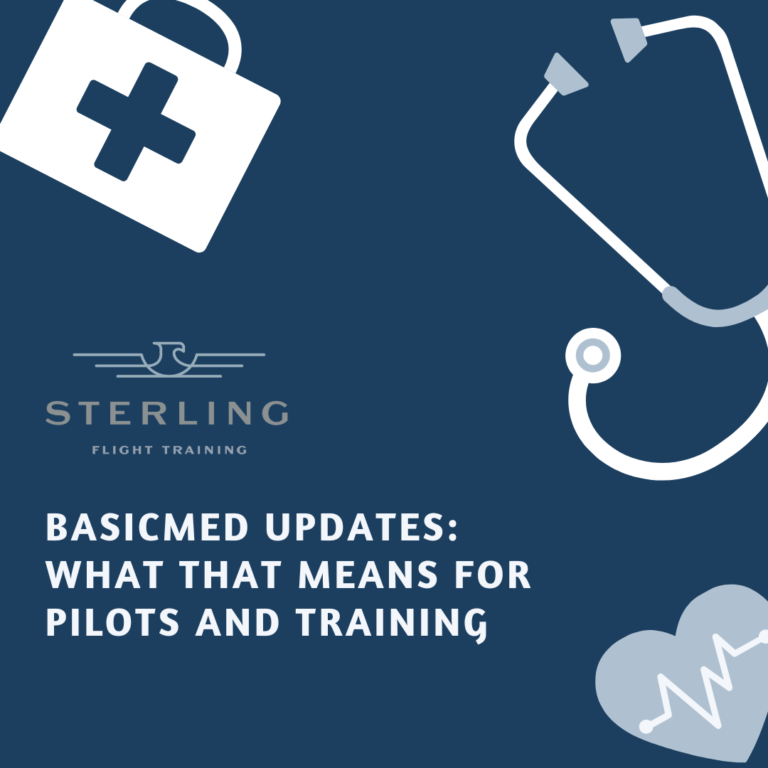On November 15, the FAA announced significant updates to BasicMed, increasing its flexibility for pilots and expanding its utility for training and recreational aviation. These updates, mandated by the FAA Reauthorization Act of 2024, include allowing pilots to operate aircraft with a maximum takeoff weight of up to 12,500 pounds (previously 6,000 pounds), carry up to six passengers (previously five), and permit Designated Pilot Examiners (DPEs) to administer flight checks in BasicMed-qualified aircraft.
These changes represent a win for pilots, flight training programs, and general aviation as a whole. Here’s why they matter:
Enhanced Accessibility for Aspiring Pilots
BasicMed was introduced in 2017 to simplify the medical certification process for pilots, offering an alternative to the third-class medical certificate. With the updated weight and passenger allowances, pilots now have greater access to a wider range of aircraft. This opens opportunities for flight schools, like Sterling Flight Training, to incorporate these aircraft into training programs for advanced certifications or endorsements, providing students with more practical, real-world experience.
Strengthening General Aviation
Allowing DPEs to administer flight checks in BasicMed-qualified aircraft eliminates a significant logistical hurdle. For training organizations, this means greater efficiency in scheduling checkrides and leveraging available aircraft. The new rules also allow more pilots to serve their communities by offering transport and recreational flying opportunities, contributing to the broader general aviation ecosystem.
Reinforcing Safety Standards
The FAA’s findings that BasicMed pilots maintain safety records comparable to those with third-class medicals reinforce confidence in the program. This update underscores that aviation safety is not compromised, even with expanded privileges. By maintaining structured requirements—such as biennial online courses and physical exams—BasicMed ensures that pilots remain fit to fly while reducing administrative burdens.
The Sterling Perspective
At Sterling Flight Training, we view these updates as a positive step for both pilots and the training industry. For students, they offer a pathway to operate more capable aircraft while simplifying medical certification. For flight schools, the changes mean greater flexibility in building programs that meet the needs of a diverse pilot population.
If you’re considering flight training under BasicMed or want to explore how these updates might benefit your aviation journey, we’re here to help. Contact us today to learn how we can support your goals in the cockpit.
The future of general aviation is brighter with these expanded opportunities, and Sterling Flight Training is excited to be part of it.





